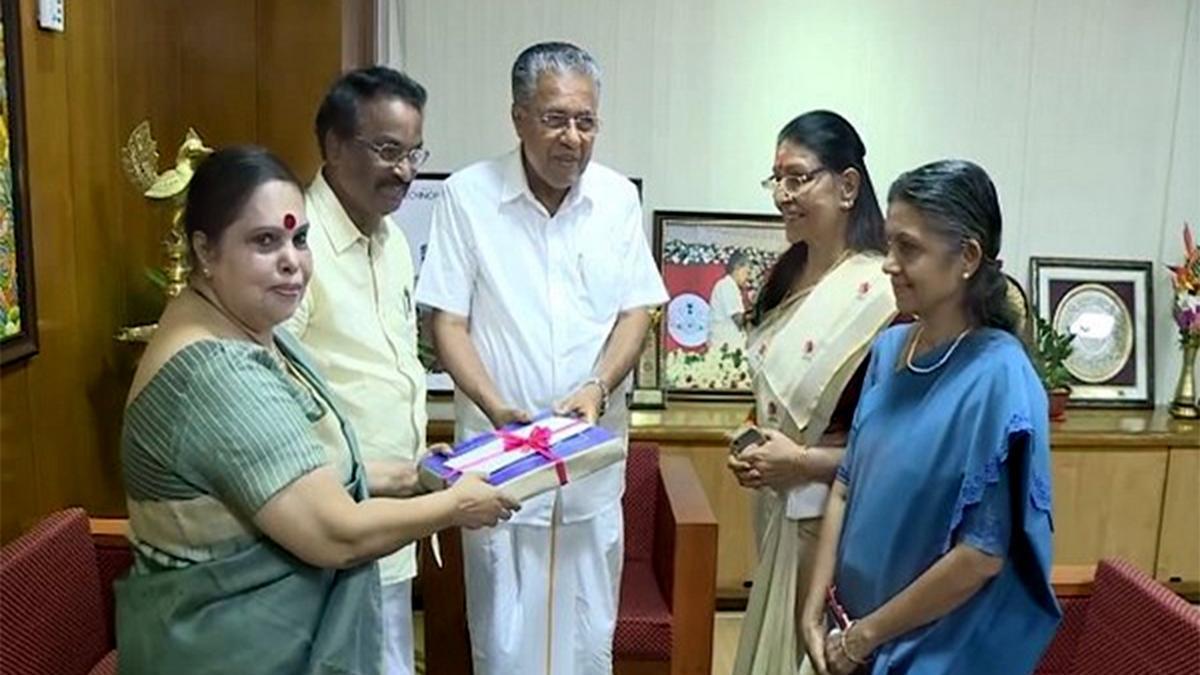
The K. Hema Committee’s long-awaited report on the issues plaguing women in the Malayalam film industry, published on Monday, reveals a grim reality marked by tales of sexual exploitation, covert bans, discrimination, substance abuse, wage disparity, and in some instances, appalling working conditions. This comes five years after the report was initially submitted to the Kerala government.
The comprehensive 235-page report was released with witness names and those of the accused redacted for their protection. The document unveils that the Malayalam film industry operates under the oppressive control of certain male producers, directors, and actors. A prominent actor within the industry likened this group to a “mafia” capable of imposing bans on anyone who crosses them.
One of the most shocking confirmations in the report is the existence of the “casting couch” practice. Unlike other fields, sexual harassment in this industry begins even before women commence their careers. Well-known figures in the industry have been reported to demand sexual favours in exchange for roles. Several witnesses provided audio clips, video recordings, and screenshots of WhatsApp messages as evidence of casting couch incidents.
The report highlights the appalling and unsafe living conditions during film shoots. Women have recounted instances where intoxicated men would frequently knock on their doors late at night. Some attempts to forcibly enter these accommodations have been reported, with one specific instance where an actress had to act opposite her abuser the day after an incident, causing significant emotional trauma. The notion that successful women in the industry advance their careers through “compromise” is actively perpetuated by some insiders to exploit newcomers.
A pervasive atmosphere of fear hinders many women from speaking up about their experiences, worrying about severe repercussions. This fear is justified, as the committee expresses concerns for the safety of these women and their relatives. The gravity of their experiences is such that many women have not even disclosed these traumas to close family members.
Calls for police intervention are rare due to anticipated retaliation from powerful industry figures and the risk of cyberattacks given their public profiles. Illustrating the pervasive intimidation, when the Hema Committee formed a WhatsApp group with industry dancers, most exited the group upon learning the committee’s intentions. A similar response was observed among junior artists, a segment particularly subjected to exploitation.
Industry “power groups” exert tremendous influence, advising producers against casting actors who have fallen out of favour.
. This control extends to film releases, as the Film Chamber of Commerce must issue a No Objection Certificate (NOC). Production controllers play a critical role in executing industry bans. Members of the Women in Cinema Collective (WCC), which played a pivotal role in the formation of the Hema Committee, often find themselves blacklisted for speaking out against industry abuses.
Further, the report underscores the dismal lack of basic amenities such as changing rooms and toilet facilities on set, particularly in outdoor locations. This neglect often results in urinary infections among women. The committee observed that some men, including a prominent actor, downplayed the urgency of addressing this issue.
Junior artists, often treated “worse than slaves,” endure workdays that can extend up to 19 hours. Intermediaries frequently embezzle significant portions of their wages, paid sporadically at best. One harrowing story recounts a 70-year-old woman who suffered severe burns during a big-budget movie shoot and received no financial aid for her medical treatment. These junior artists are excluded from any formal film organizations due to their vulnerability.
The absence of written contracts further exacerbates exploitation, as actors and technicians are often deprived of agreed-upon compensation. An illustrative case involves an actress in a titular role who was coerced into performing an intimate scene. When pressured to do more revealing shots, she left the set without collecting her dues. The director threatened to withhold the scene’s deletion unless she came to Kochi herself.
Additionally, junior artists face the problem of undefined work roles and lack minimum remuneration. Assistant and associate directors also face egregious underpayment for continuous months of work, often without even receiving daily allowances. Their exhaustive pre-production efforts are frequently unrecognized as ‘work’. A witness cited the experience of a female scriptwriter whose gender justice narrative was so distorted by the director that she refused script credit.
The Hema Committee casts doubt on the efficacy of Internal Complaints Committees (ICCs), suggesting that influential individuals can intimidate or coerce members to handle complaints as they desire. Concerns about confidentiality and the potential for further victimization if ICCs are composed of industry insiders are prominent. The report recommends legislative action and the establishment of a Tribunal to address the multifaceted issues faced by women within the film industry.












